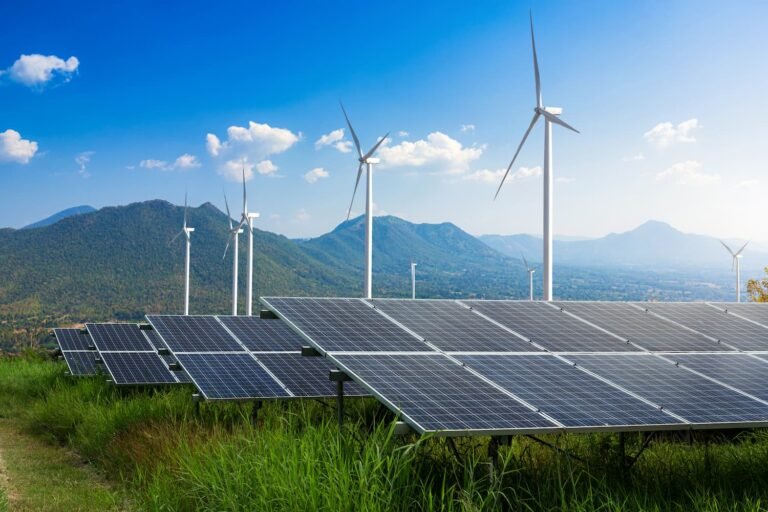The worldwide energy industry is changing significantly in front of growing climate change. The search of Carbon Free Electricity (CFE) and the general acceptance of renewable energy sources define the core of this change. Emerging as a vital instrument in this shift, Energy Attribute Certificates (EACs) have helped sustainable energy to flourish. The relevance of EACs in the present energy scene and their influence on CFE projects and acceptance of renewable energy sources is investigated in this paper.
Demystifying Energy Attribute Certificates
Market-based tools that reflect the environmental qualities of one megawatt-hour (MWh) of electricity produced from a renewable source, Energy Attribute Certificates (RECs) are used in various areas under other names. These certificates provide a physical means of monitoring and trading the environmental advantages connected with the generation of renewable energy. EACs provide a flexible structure that lets companies help the growth of renewable energy even if direct access to green power is restricted by isolating the environmental qualities from the physical electricity.
Driving Renewable Energy Growth through EACs
Encouragement of the growth and acceptance of renewable energy sources depends much on EACs. These certificates provide renewable energy producers more income by establishing a secondary market for the environmental qualities of clean energy. This financial incentive speeds the shift away from fossil fuels and promotes investment in newly proposed renewable energy projects. Furthermore, EACs enable businesses and people to claim the usage of renewable energy even if they cannot directly get green electricity owing to geographical or infrastructural restrictions.
Carbon Free Electricity and the EAC Connection
The battle against climate change revolves mostly on the quest of Carbon Free Electricity (CFE). CFE, or zero carbon emissions generated from various clean technologies as well as renewable energy sources, By allowing a means to confirm and trade the environmental qualities of these clean energy solutions, Energy Attribute Certificates are essential in supporting CFE projects. A secure, dependable, and sustainable energy future fit with global decarbonization targets depends on this synergy between EACs and CFE.
Enhancing Corporate Sustainability Efforts
Energy Attribute Certificates provide a workable answer for companies trying to lower their carbon impact and satisfy sustainability targets. Although they cannot create or directly buy green power, by buying EACs businesses may offset their electricity use with an equal quantity of renewable energy. This adaptability lets companies support the larger shift to Carbon Free Electricity while making significant progress toward individual environmental goals. EACs provide a clear and verifiable means for companies to show their commitment to clean energy as corporate sustainability grows in relevance to stakeholders.
Overcoming Challenges in the EAC Ecosystem
Although Energy Attribute Certificates have shown to be a useful instrument for encouraging acceptance of renewable energy sources, the market suffers many difficulties. Problems include double-counting, lack of standardizing across several areas, and guaranteeing additionality—the guarantee that EAC purchases result in fresh production of renewable energy—have to be resolved. Targeting to increase the integrity and efficacy of the EAC system in supporting the transition to CFE, efforts to improve tracking systems, harmonize international standards, and boost market transparency are continuous.
The Future of EACs in the Global Energy Transition
Energy Attribute Certificates will become more important in promoting renewable energy adoption and attaining Carbon Free Electricity as the globe speeds up its attempts to counteract climate change. EACs’ integration with developing technologies like blockchain promises to improve traceability and lower fraud, therefore reinforcing their relevance. Furthermore, as additional nations and areas implement EAC systems, the worldwide market for these certificates is likely to expand, therefore generating fresh chances for international collaboration in the development of renewable energy as well as for cross-border commerce.
Conclusion: EACs as Pillars of a Sustainable Energy Future
Essential instruments in the search of a sustainable energy future are now Energy Attribute Certificates. EACs are hastening the worldwide shift to clean electricity by offering a market-based mechanism to assist programs for Carbon Free Electricity and growth of renewable energy. The value of these certificates in promoting investment, improving business sustainability, and encouraging innovation in the renewable energy industry cannot be understated as the energy terrain changes. A cleaner, more sustainable energy future for next generations will be shaped in great part by ongoing development and improvement of EAC systems, therefore moving us closer to the goal of a carbon-free electrical grid.

